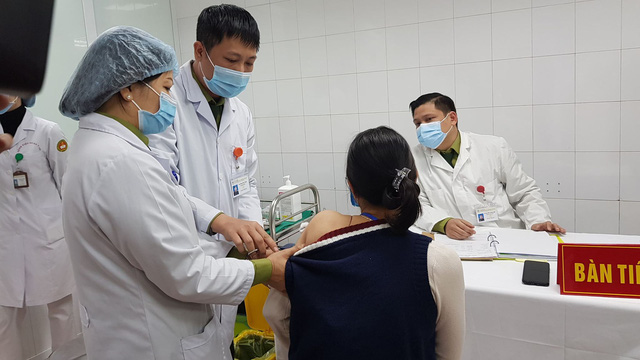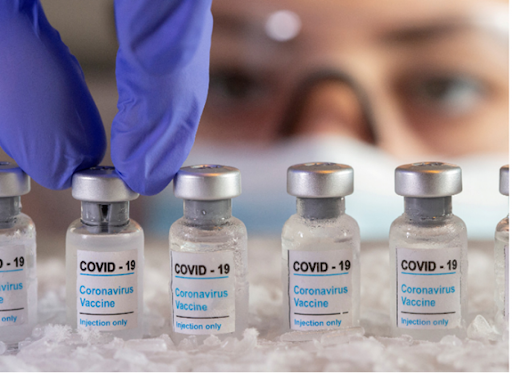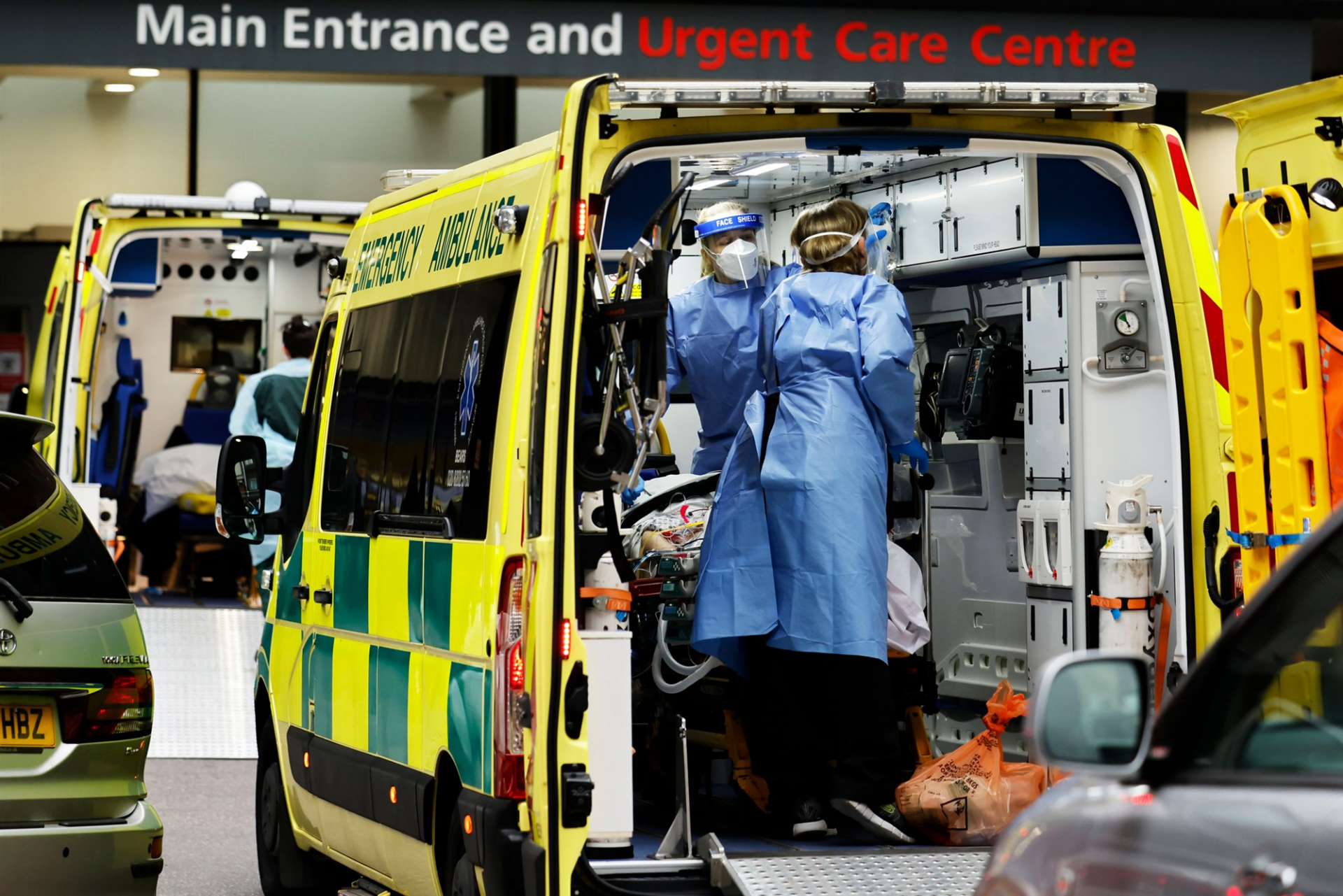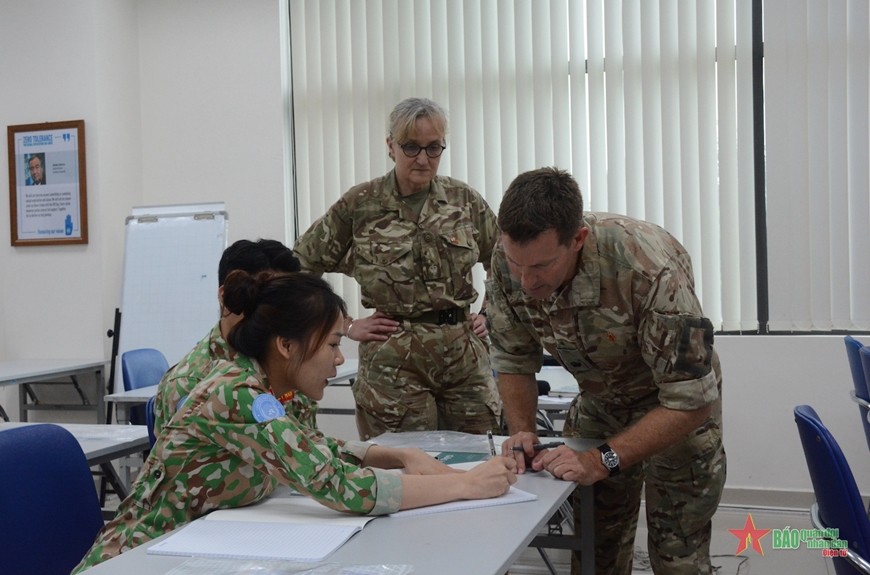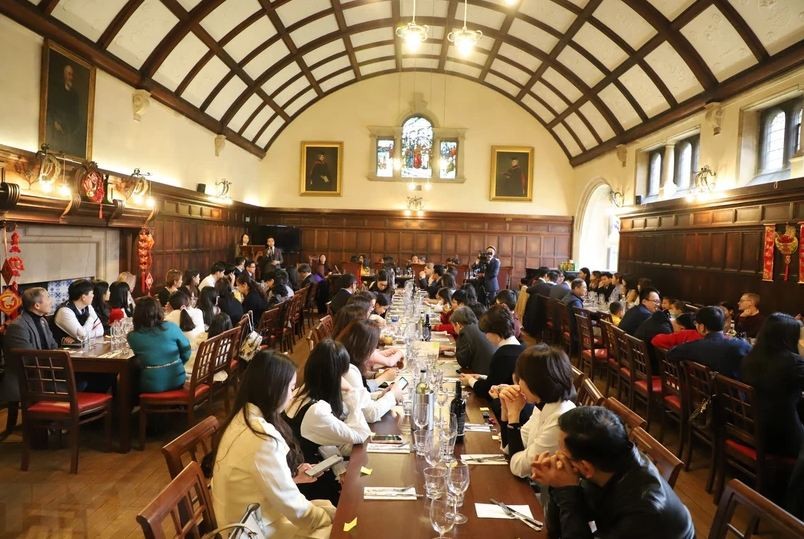Immunity will last roughly five months after Covid infection, new study shows in U.K
The preliminary findings in Public Health England’s SIREN study — which has surveyed thousands of U.K. health-care workers in a bid to establish whether prior infection protects against future infection — found antibodies provide an 83% rate of protection against reinfection, compared with people who have not had the disease before, according to CNBC.
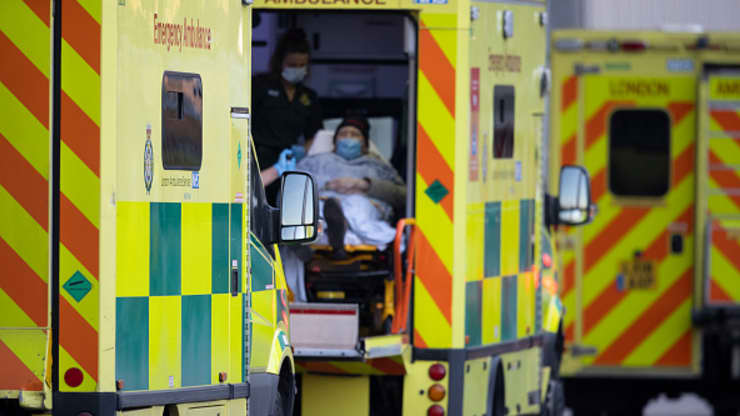 |
| Patients arrive in ambulances at the Royal London Hospital, on January 05, 2021 in London, England. The British Prime Minister made a national television address on Monday evening announcing England is to enter its third lockdown of the covid-19 pandemic. This week the UK recorded more than 50,000 new confirmed Covid cases for the seventh day in a row. (Photo: Dan Kitwood | Getty Images News | Getty Images) |
This immunity appears to last at least five months, the report said. Reinfections in people with antibodies were rare, the study published on Thursday found, with experts identifying 44 potential reinfections among 6,614 participants involved the study.
But researchers warned that the protection was not absolute, meaning some people do catch the virus again, and that it was unclear how long any immunity lasts. It is also possible that those who have a degree of immunity against the virus may still be able to carry the virus in their nose or throat and therefore transmit it to others.
"We now know that most of those who have had the virus, and developed antibodies, are protected from reinfection, but this is not total and we do not yet know how long protection lasts," Susan Hopkins, senior medical adviser at PHE and co-leader of the study, said in a statement.
"Even if you believe you already had the disease and are protected, you can be reassured it is highly unlikely you will develop severe infections. But there is still a risk you could acquire an infection and transmit (it) to others," Hopkins said.
The study comes as coronavirus vaccines developed by Pfizer-BioNTech, Moderna and the University of Oxford and AstraZeneca are being rolled out in the U.K.; the former two vaccine candidates were found to be around 95% at preventing Covid-19 infection, and the latter candidate 70% effective on average.
Scientists are still uncertain as to how long the protection from coronavirus vaccines might last. They are also unsure as to whether a vaccinated person will still be able to transmit the virus.
The SIREN study
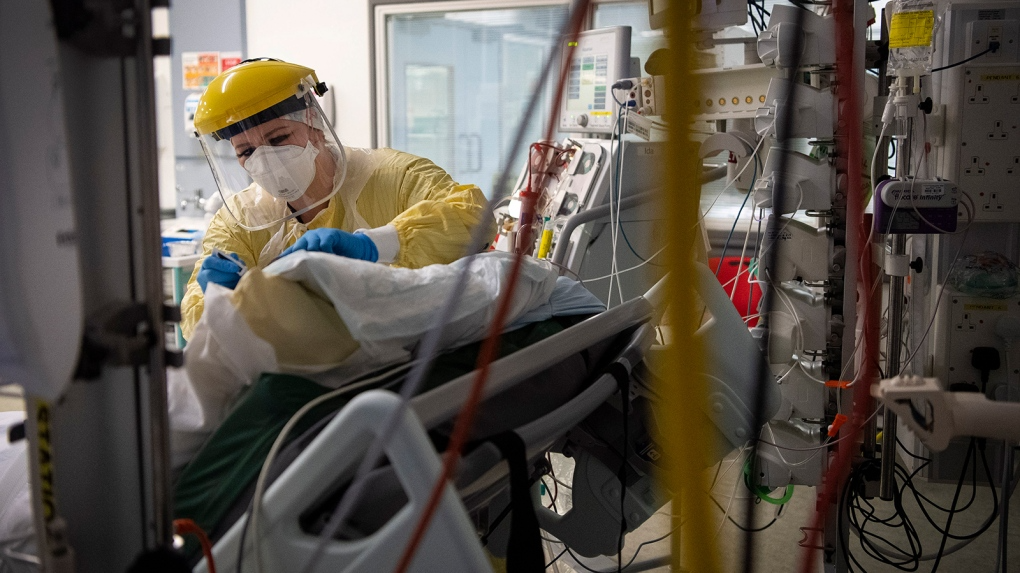 |
| A U.K. study suggests COVID-19 infection grants immunity for five months. Seen here, a nurse works with a patient inside the Intensive Care Unit at St. George's Hospital in London, on January 6. (Photo: Victoria Jones/AP) |
The SIREN study, which stands for SARS-CoV-2 Immunity & Reinfection Evaluation and started in June, has performed regular antibody and PCR testing on 20,787 health workers, including frontline clinical staff and those in nonclinical roles.
According to CNN Edition, the SIREN research study regularly tested almost 21,000 health workers from across the UK between June and November. Among them, 6,614 people participants tested positive for antibodies against the virus, while more than 14,000 had no signs of previous infection.
But of those who had been infected, 44 developed possible new infections -- representing an 83% level of protection against reinfection.
Participants attended regular testing every two to four weeks and completed fortnightly questionnaires on symptoms and exposures to the virus.
The study will continue to monitor healthcare workers for 12 months to see if protection lasts even longer, but for now the length of protection identified means that people who caught the virus in the first wave of infections may now be able to catch it again. It will also look into the impact of the new variant and the effectiveness of Covid-19 vaccines.
But early insight from the next stage of the study shows that some people with existing immunity carry high levels of virus and could transmit the virus to others.
Hopkins highlighted this during an interview with the BBC's Today program on Thursday.
"We found people with very high amounts of virus in their nose and throat swabs, that would easily be in the range which would cause levels of transmission to other individuals."
Hopkins stressed that people who had previously caught Covid-19 still needed to obey social distancing rules to avoid transmitting the disease.
"The SIREN study has major implications for how we can get out of the current crisis. The good news is that this study gives further weight that reinfections of Covid is rare, at least at this stage, and that having antibodies will provide protection for a meaningful amount of time, although it may not be lifelong immunity," Dr. Simon Clarke, Associate Professor in Cellular Microbiology, University of Reading, told the Science Media Centre.
"The concerning finding is that some people who have Covid antibodies appear to still be able to carry the coronavirus and could spread it to others. This means that the vast majority of the population will either need to have natural immunity or have been immunised for us to fully lift restrictions on our lives," he said.
Lawrence Young, Virologist and Professor of Molecular Oncology, Warwick Medical School added that because the results cover the months before the new variant took hold, "it will be important to determine whether previous infection with the old virus variant is able to offer protection from re-infection with the new virus variant."
England is currently under a stringent national lockdown after cases surged over the holiday period. The UK has recorded more than 3.2 million cases of infection.
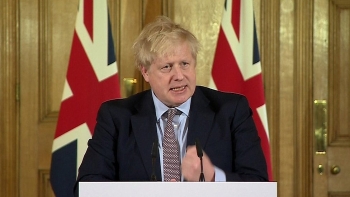 | World breaking news today (November 1): Boris Johnson puts U.K. on coronavirus lockdown World breaking news today (November 1): Boris Johnson puts U.K. on coronavirus lockdown. Meanwhile, Super typhoon Goni hits the Philippines, Blast rocks coronavirus hospital in ... |
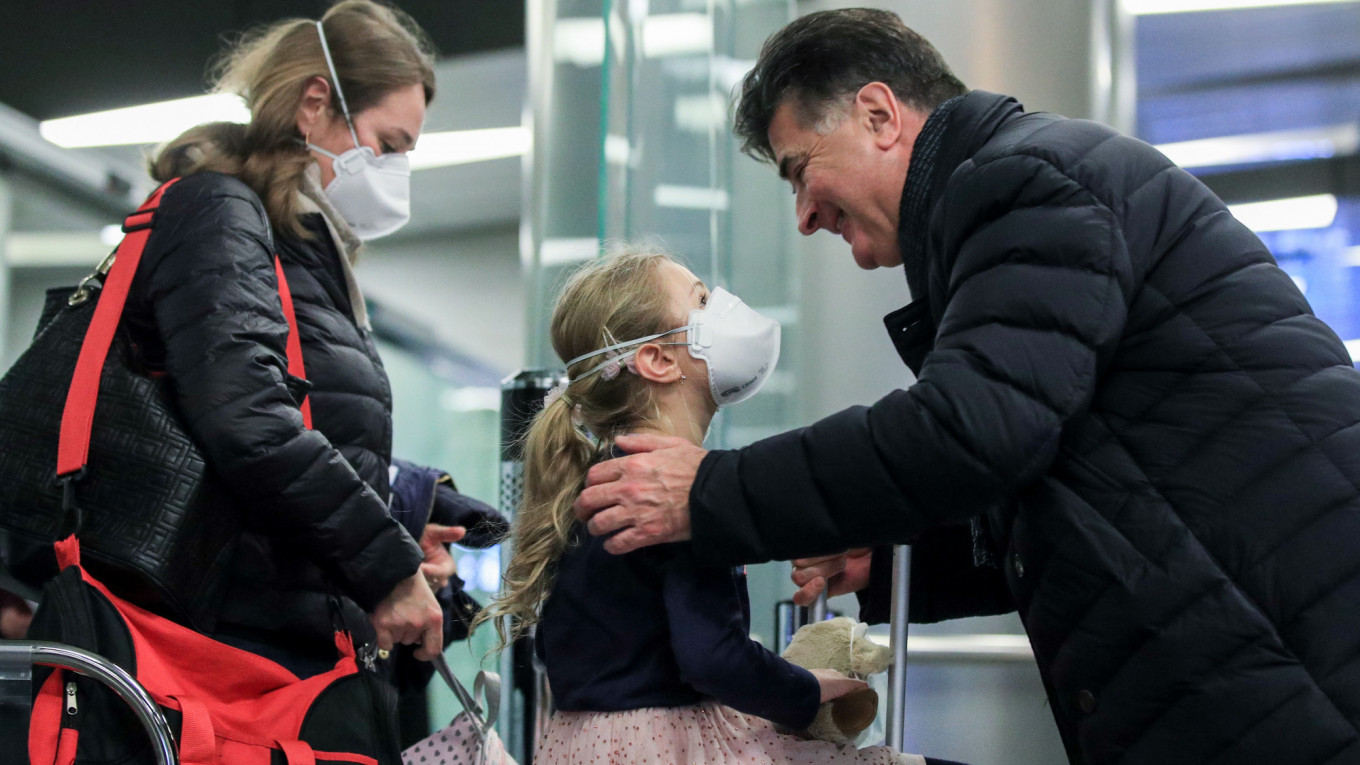 | Latest coronavirus in Europe: Lockdowns in France and U.K. may last to May, Russia’s outbreak described as in bleak terms The coronavirus situation in Europe still spirals uncontrollably, as a result, countries in the region are cautious to make decisions on whether to lift lockdown ... |
 | Charter flights to link Italy, U.K. with Vietnam's Phu Quoc by late 2017 Travel firms TUI and Alpitour World are seeking cooperation from Vietnam to launch the service in November and December. |
Recommended
 World
World
Pakistan NCRC report explores emerging child rights issues
 World
World
"India has right to defend herself against terror," says German Foreign Minister, endorses Op Sindoor
 World
World
‘We stand with India’: Japan, UAE back New Delhi over its global outreach against terror
 World
World
'Action Was Entirely Justifiable': Former US NSA John Bolton Backs India's Right After Pahalgam Attack
Popular article
 World
World
US, China Conclude Trade Talks with Positive Outcome
 World
World
Nifty, Sensex jumped more than 2% in opening as India-Pakistan tensions ease
 World
World
Easing of US-China Tariffs: Markets React Positively, Experts Remain Cautious
 World
World

